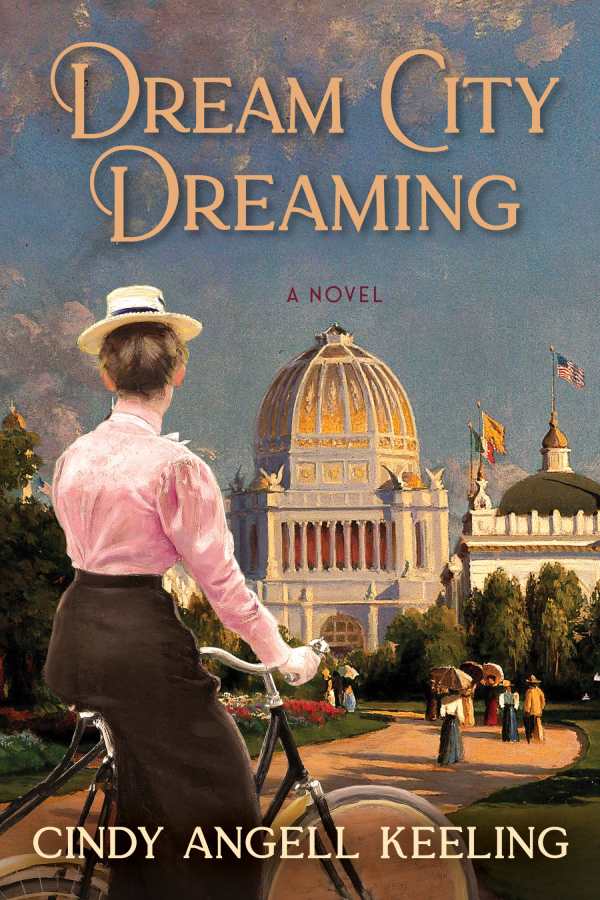Dream City Dreaming
In the historical novel Dream City Dreaming, travel inspires a mother and her son to embrace change.
A young widow and her son reawaken in Cindy Angell Keeling’s splendid Gilded Age novel Dream City Dreaming, about a trip to the famed Chicago World’s Fair.
Juna is the daughter-in-law of Seymour, the Lewis Vinegar Company’s owner. When she and her teenage son, Henry, are sent to the 1893 World’s Columbian Exposition to see their award-winning brand in the Missouri pavilion, they meet Peterson, the company’s agent, who’s there to mentor Henry. Amid the international display of goods and neoclassical architecture, optimism blooms—and so too do Juna’s ideas about self-improvement. Meanwhile, Henry, who just recovered from a serious illness, harbors dreams that have nothing to do with continuing in the family business.
The setting is established in thorough terms, through Juna’s and Henry’s alternating perspectives. They make note of the entrepreneurial spirit embodied by each showcase. And they are surprised by events and people, including a fire and a Japanese girl who piques Henry’s fascination. Juna’s involvement with the Fair grows: she volunteers with a Missouri contingent and enrolls in an elocution class. Meanwhile, Henry experiments with photography, explores natural history, and becomes enthusiastic about period developments like bicycles, and Juna’s sister pens whimsical newspaper articles about the Fair. Their excitement complements the Fair’s humanistic hopes.
A strong theme surrounding women’s contributions and their desires to be valued emerges through Juna’s fun encounters with new people. When she’s inspired with a plan to use vinegar in a novel way, this, too, folds into her sharpening awareness of how she might revitalize her confidence. Indeed, independence becomes a key issue in the tale: the more Juna experiences it, the more she wonders whether she could love again, or if love would hinder her.
Peterson is a capable guide, though in Henry’s opinion, he’s also a loud “know-it-all.” His responses concerning how he came to join the Lewis Vinegar Company are vague, creating just enough tension to raise questions about his aims. As the novel progresses, he and Juna share conversations: he helps her overcome one of her fears and expresses romantic interest in her. But because of his caginess, he’s often a peripheral character, and he’s underdrawn in the end. The book’s languid pace also obscures its central focus. Late-stage developments, including revelations concerning the past and the discovery of a betrayal, are rushed through. Still, the book’s affirming, restorative conclusion is entertaining and memorable.
In the historical novel Dream City Dreaming, travel inspires a mother and her son to embrace change.
Reviewed by
Karen Rigby
Disclosure: This article is not an endorsement, but a review. The publisher of this book provided free copies of the book and paid a small fee to have their book reviewed by a professional reviewer. Foreword Reviews and Clarion Reviews make no guarantee that the publisher will receive a positive review. Foreword Magazine, Inc. is disclosing this in accordance with the Federal Trade Commission’s 16 CFR, Part 255.

